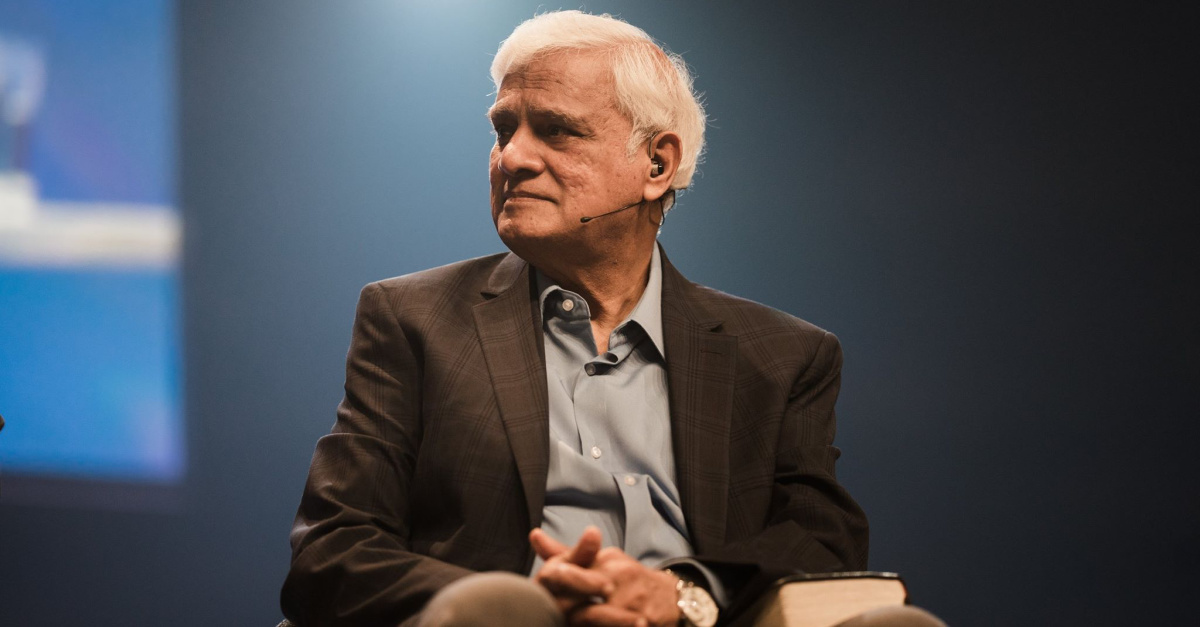Yet Do It With Gentleness and Respect
I originally published an article with this title shortly after Ravi Zacharias died. With the recent release of the findings of the investigation into his sexual misconduct, I decided it was no longer appropriate to encourage anyone to look to the life of Ravi Zacharias as an example of anything good or Christ-like.
My initial reaction was to completely pull the article off-line. It stunk in a way though because that piece of content was one of my most visited. But, I realized that, rather than take it down completely, it would maybe serve the issue better if I kept the article up and rewrote it with updated information on where things are.
“Sexual misconduct” is putting it lightly. Ravi Zacharias was a sexual predator who used his power and position to manipulate young women into situations where they felt they had no other choice but to gratify him sexually. Not only would he offer them money and gifts and shower them with praise and compliments, but he also went as far as bringing his “faith” into it as a way to ease the fears of his victims.-Or convince them to keep silent. He would tell them “you are my reward for faithful service”. Or “if you tell anyone, think of the millions of souls that my work has reached and how they would be affected were they to hear about this”.
I’ve written more about the lessons we can learn from Ravi’s fall here.
Here is a great, in depth video from Mike Winger where he goes through the entire report and gives some great advice on how to process all of this
When I heard the final report, I struggled with what to do with the lessons I said I had learned as a result of watching Ravi. Not that I felt the lessons were wrong. An evil person can still say a true thing. Or even a good thing. That doesn’t make the statement immediately evil, wrong, untruthful, or bad just because an evil person said it. But, how could I possibly encourage others to learn the same lesson I learned from Ravi?
That’s when I realized it wasn’t Ravi who my “take away” came from; it’s Scripture. In fact, when I initially gave Ravi praise, it was because I thought he was personifying something from Scripture.
So, here it is rewritten. The takeaway I wanted to express. Something I realize I still need to do better at.
As learned from the source.
Yet Do It With Gentleness and Respect
These seven words end the verse Christian apologists cite as their directive to give a defense for Christianity. The verse can be found in 1 Peter 3:15 and it says
but in your hearts honor Christ the Lord as holy, always being prepared to make a defense to anyone who asks you for a reason for the hope that is in you; yet do it with gentleness and respect,
1 Peter 3:15 (ESV)
Most apologists (myself included) have the middle part ingrained in us. We get excited at the challenge of ideas. Getting into debates with others can be quite exhilarating and feels almost like combat. Yet, Peter tells us that an attitude of battle is not the mindset we should be in when giving a defense. Christian case making is not supposed to be a submission match. Telling people why we think Christianity is true is supposed to be done with gentleness and respect.
When doing apologetics, we are told to go after ideas and not make it personal. This is good advice. Hopefully, by focusing on the intellectual issues, we can make reason and logic the basis of our deductions. We learn about the intellectual responses to things like the problem of evil.
We have to be careful, however, and not make our responses too impersonal. We can’t completely forget that behind every question is a questioner. Some people have questions because they have been through something tough. They lost an infant child. They were abused by someone they trusted. Something bad happened to them at a church they used to attend. These are all legitimate reasons for pain and cause people to ask questions.
It’s easy to cast aspersions at someone who doesn’t agree with us and assume their challenge is because “they don’t know any better”. Maybe part of that assumption is true, but we can’t automatically go to the mindset of wanting to educate this person on the folly of their thinking. True, maybe their challenge does come from a lack of knowledge on a given topic. But, to cut the questioner’s humanity out of the conversation entirely could be a missed opportunity to get to the heart of the issue the person has. Sometimes, what people really need is emotional healing and not intellectual correction.
A lesson that I continue to learn is that not everyone with questions or challenges is seeking an intellectual response. Many people come with a lot of history behind the question they raise. And, it is only through seeing the person behind the question that I can keep my responses gentle and caring. Also, my character is the first thing people evaluate – not the power of my well thought out arguments. It doesn’t matter how airtight my case is, if I don’t show that I care about them then they won’t listen.
Most of us will not go on to affect hundreds of thousands of people like many popular teachers and speakers will. Most of us will not get a platform that covers the globe the way many large ministries do. But, just imagine the impact we can have on the global scale if we, too, develop the ability to give people reasons for the hope that lies within us. That all starts with our actions, our personality, how we treat others, and remembering that it’s people we are dealing with and not just their arguments.
Share This Story, Choose Your Platform!
latest video
news via inbox
Nulla turp dis cursus. Integer liberos euismod pretium faucibua







